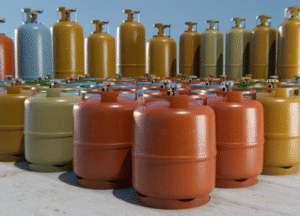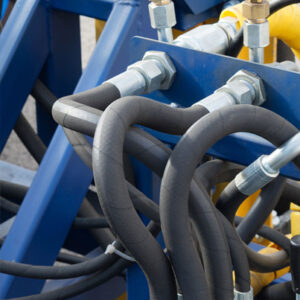
Running a small business requires careful planning and smart budgeting—especially when it comes to essential energy sources like gas cylinders. Whether you operate a restaurant, a small manufacturing unit, a bakery, a welding shop, or a home-based food business, gas cylinders often play a vital role in daily operations. However, rising fuel prices, storage concerns, and the need for reliable supply can make gas cylinder management challenging for small businesses.
The good news is that there are multiple affordable gas cylinder solutions available today that help small enterprises maintain efficiency without overspending. This article explores cost-effective gas cylinder options, safety considerations, purchasing tips, and strategies to optimize gas consumption for long-term savings.
Why Gas Cylinders Matter for Small Businesses
Gas cylinders remain a popular energy choice across different industries due to their convenience, flexibility, and cost-effectiveness. They are commonly used for:
1. Cooking and heating
Restaurants, cafés, canteens, and home-based kitchens rely heavily on LPG cylinders for consistent heat and quick cooking times.
2. Industrial and manufacturing work
Workshops and small factories use oxygen, acetylene, and other industrial gas cylinders for welding, cutting, shaping, and production tasks.
3. Backup energy
During electricity shortages or emergencies, many businesses use gas cylinders as backup power for heaters, generators, and stoves.
4. Mobility and ease of use
Unlike pipeline gas, cylinders are portable, making them perfect for businesses that need flexibility or operate in remote locations.
Because of this versatility, finding affordable gas cylinder solutions can help small businesses reduce operational costs and boost profitability.
Types of Gas Cylinders Suitable for Small Businesses
To choose the most affordable option, small businesses first need to understand the different types of cylinders available.
1. LPG (Liquefied Petroleum Gas) Cylinders
LPG cylinders are the most widely used across small businesses due to their clean burning, high energy output, and availability. Ideal for:
-
Restaurants
-
Food carts
-
Bakeries
-
Catering services
-
Home-based chefs
They come in sizes such as 6 kg, 11 kg, 15 kg, and 45 kg, allowing businesses to choose according to consumption.
2. Industrial Gas Cylinders
Industries often use specialized cylinders filled with gases like:
-
Oxygen
-
Nitrogen
-
Acetylene
-
Argon
-
Carbon dioxide
These are essential for welding, fabrication, packaging, and mechanical work.
3. Composite Gas Cylinders
These lightweight cylinders are becoming popular because they are corrosion-free, safe, easier to carry, and sometimes cheaper in the long run.
4. Refillable Cylinders
Refillable units allow businesses to refill their cylinder instead of exchanging it. This can significantly reduce long-term costs.
5. Bulk/Commercial Cylinders
For businesses with higher demand, commercial-grade larger cylinders offer better value per kilogram of gas.
Key Features of Affordable Gas Cylinder Solutions
Finding an affordable solution doesn’t mean compromising on quality. Here are key features small businesses should look for:
1. Competitive Pricing
Compare different suppliers and brands to ensure you’re getting the best deal. Some suppliers offer discounts for monthly orders or bulk refills.
2. Safety Assurance
Affordable does not mean unsafe. Cylinders must comply with safety standards, leak testing, and proper valve systems.
3. Durability
High-quality steel or composite cylinders last longer and reduce replacement costs.
4. Easy Refilling or Exchange
Choose a supplier with quick delivery and easy exchange policies to avoid downtime.
5. Reliable Customer Support
Businesses rely on consistent supply, so choosing a provider with good customer service is essential.
How Small Businesses Can Reduce Gas Cylinder Costs
Lowering gas cylinder expenses is possible through smart planning and small adjustments in daily operations. Below are strategies to reduce costs without compromising performance.
1. Choose the Right Cylinder Size
Many small businesses spend more simply because they use cylinders that are either too large or too small.
-
Too large: You pay more upfront without maximizing use.
-
Too small: Frequent refills increase long-term cost.
Analyze your average daily consumption and choose an appropriate size that meets your needs efficiently.
2. Use Multi-Cylinder Manifold Systems
For restaurants, bakeries, or small factories with high gas consumption, a manifold system connects several cylinders together. Benefits include:
-
Continuous gas supply
-
Lower refill frequency
-
Discounted pricing for multiple cylinders
-
Improved safety and convenience
3. Opt for Refillable Cylinders Instead of Exchange Units
Refilling your existing cylinder often costs less than exchanging it for a new one. Many local suppliers offer competitive refill prices, reducing operational costs over time.
4. Compare Suppliers Before Choosing
Small businesses can save money by comparing:
-
Cylinder rental fees
-
Deposit charges
-
Delivery fees
-
Per-kg gas rates
-
Refill schedules
Choosing the right supplier can result in significant annual savings.
5. Invest in Energy-Efficient Appliances
Modern stoves, burners, and industrial equipment consume less gas while delivering better heat efficiency. Although these appliances cost more initially, they reduce gas usage by 20–30% in many cases.
6. Schedule Timely Maintenance
Gas appliances with leaks, dirt buildup, or faulty burners waste gas. Regular inspections help ensure:
-
No leaks
-
Efficient flame quality
-
Reduced consumption
-
Improved safety
7. Prevent Gas Leakage
Even small leaks cause major gas waste. Employees should be trained to:
-
Regularly check seals and valves
-
Shut off the cylinder after use
-
Report strange smells or noises immediately
A leak-free environment not only saves money but also improves overall safety.
8. Buy Cylinders Instead of Renting
Some suppliers charge monthly or annual rental fees. Purchasing your cylinder outright may be more affordable in the long term, especially for permanent businesses.
9. Track Gas Usage
Monitoring your consumption helps identify patterns and reduce wastage. Many businesses save money by:
-
Keeping a usage log
-
Setting monthly limits
-
Tracking refill frequency
-
Identifying spikes in consumption
Safety Tips for Small Businesses Using Gas Cylinders
Affordable solutions should also prioritize safety. Even a minor mistake can lead to serious accidents, property damage, or business interruption.
1. Store Cylinders Upright
Always keep them in an upright position to avoid leaks or pressure imbalance.
2. Ensure Proper Ventilation
Workspaces using gas must have open windows, exhaust systems, or fans for adequate air circulation.
3. Install Gas Leak Detectors
These detectors provide early warnings and prevent potential hazards.
4. Keep Cylinders Away from Flames
Cylinders should be stored away from stoves, welding sparks, or any heat source.
5. Train Employees on Proper Handling
Staff should know:
-
How to open and close valves
-
How to detect leaks
-
Emergency shut-off procedures
-
Safe cylinder movement and storage
Choosing the Right Gas Cylinder Supplier
A reliable supplier helps ensure affordable pricing, consistent supply, and safety. When choosing one, consider:
1. Reputation and Experience
Established suppliers are more likely to follow safety standards and offer reliable service.
2. Competitive Pricing
Look for transparent pricing without hidden fees.
3. Delivery Options
Regular and fast delivery minimizes downtime for your business.
4. Exchange and Refund Policies
Understand deposit rules, replacement fees, and return conditions.
5. Customer Support
A supportive supplier can help resolve emergencies and provide technical advice.
The Future of Affordable Gas Cylinder Solutions
As energy efficiency trends grow, small businesses can expect:
1. More lightweight and composite cylinders
Safer, rust-free, and easier to transport.
2. Smart gas monitoring systems
Track usage digitally and prevent wastage.
3. Expanding refill networks
Greater accessibility in urban and rural areas.
4. Environment-friendly gas options
Cleaner energy choices for sustainable operations.
Conclusion
Affordable gas cylinder solutions are essential for small businesses that rely on consistent, efficient, and cost-effective energy. By choosing the right type of cylinder, comparing suppliers, using energy-efficient equipment, and maintaining proper safety standards, small businesses can reduce their expenses significantly while ensuring smooth operations.
A smart gas strategy not only cuts costs but also improves productivity, safety, and long-term business sustainability. With the right planning and reliable suppliers, small businesses can enjoy an uninterrupted energy supply without breaking the budget.


